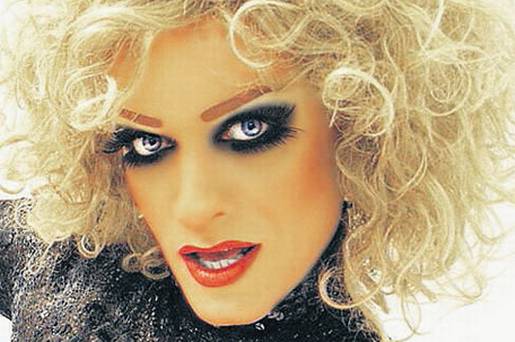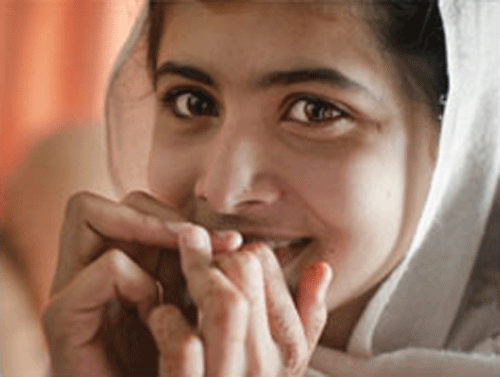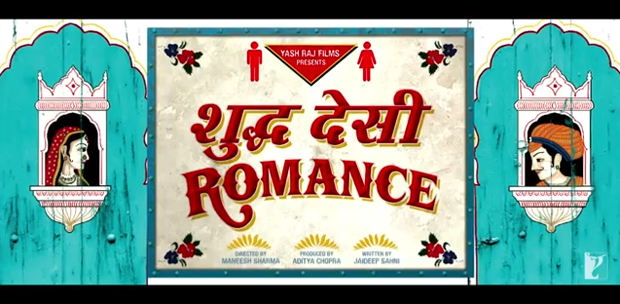31 Jan 2014 | Digital Freedom, India, News, Politics and Society

(Image: Sergey Nivens/Shutterstock)
In 2009 India announced its grand universal biometric scheme “Aadhaar”. The scheme, managed by the Unique Identification Authority of India (UIDAI), collects the fingerprints, iris scans and facial images of applicants in exchange for a national identification number. First handed out in 2010 the numbers, randomised 12-digit codes, function as “internal passports” which can be used as proof of identity to access state services.
November 2013 marked 500 million enrolments to the scheme, making Aadhaar the largest biometric programme in the world. This year the scheme is set to be linked to major development reforms, and the collection of data, stored in a centrally controlled database, aims to improve transparency, reduce corruption and ensure access to the country’s myriad of welfare benefits.
India’s welfare state is characterised by “leakage”: by corrupt middlemen syphoning off benefits and claimants taking more than their share. The biometric scheme plays an important role in making sure that those who are entitled state aid receive it. But despite this developmental progress India lacks comprehensive protections for biometric data, raising serious concerns about individual privacy.
A report by Oxford Pro Bono Publico, a research centre affiliated to the University of Oxford, found India’s controls over the collection, storage and use of biometric data, compared to other jurisdictions, hugely deficient.
The sheer scale of the project compounds concerns, with UIDAI aiming to enrol every one of India’s 1.2 billion people. The scheme was first introduced as voluntary, but as more and more development schemes are administered through it, welfare recipients seeking state aid have little choice but to hand over their data.
Justice Puttaswamy, a retired High Court judge, has led the charge in challenging the scheme on privacy grounds. As he argued in his petition to the Indian Supreme Court, “there are no safeguards or penalties and no legislative backing for obtaining personal information”. His complaint culminated in a Supreme Court interim order, which insisted that the scheme must remain voluntary and that those entitled to receive welfare should do so regardless of their Aadhaar status.
Attempts to circumvent the Aadhaar programme to deliver benefits, however, have become increasingly difficult. Last year, despite the Supreme Court order, reports emerged from Delhi that food-subsidy ration cards were only being handed out to those with national identification numbers. A recent announcement by the Minister for Food and Civil Supplies, that consumers without Aadhaar cards would continue to receive discounted cooking gas, provoked oil companies and the Union Ministry of Petroleum and Natural Gas to return to the Supreme Court to file an appeal.
Aadhaar was introduced via an executive order, a lack of statutory backing that critics argue makes the scheme unconstitutional. As Shyam Divan, a practising lawyer and petitioner in a case against the UIDAI, explains, there is no legislative oversight of the collection, storage and use of biometric data. Controls on access are similarly scant. There are no provisions that address who can access the data, when and why. At the field level, agents enrolling applicants to the scheme are employed privately and work without government supervision. Once collected, the data passes through private hands before being transferred to the UIDAI’s central repository. Corporations (including the consulting firm Accenture, tech-solutions firm Morpho and American defence contractor L-1 Identity) are involved at every stage of the operation, a sprawling collection and transmission network that campaigners fear maximises the opportunity for abuse.
The case against the scheme on constitutional grounds is equally robust. Every time a person uses their unique Aadhaar number, a real-time confirmation is sent between the access point and central database, a process that activists complain amounts to covert surveillance. Critics argue that this tracking violates the right to privacy enshrined in Article 21 of Indian Constitution. According to campaigners insufficient information on the data-collection process also amounts to a lack of informed consent, a further rights violation.
Through public interest litigation various groups have taken the UIDAI to court over the lack of statutory backing and inadequate data protection, suits that the state has dismissed as “frivolous, misleading and legally incorrect” attempts at derailing a “project that aims to promote inclusion and benefit marginalized sections of society”.
The size and inefficiency of India’s welfare state imposes enormous pressures on officials to improve service delivery. The scheme’s defenders invoke a democratic justification, arguing the government has a responsibility to ensure that welfare spending reaches those that are most in need.
Nandan Nilekani, chairperson of the UIDAI, has admitted that he may not have done enough to persuade people of the benefits of the scheme. But as Justice Puttaswamy insists “the way the government has gone about implementing this project is odd and illegal,” and questions about privacy still loom large.
This article was posted on 31 January 2014 at indexoncensorship.org
30 Jan 2014 | Ireland, News, Religion and Culture

Rory O’Neill’s alter ego Panti
Irish state-run television broadcaster RTE has come under heavy criticism after offering a full apology and possible financial compensation to the Iona Institute, a conservative Catholic lobby groups declared “homophobic” by a talk show guest.
The decision appears to have been reached under pressure from Irish Broadcasting Authority board member John Waters, who was also declared homophobic during the same segment. The allegations follow RTE’s decision to remove the remarks, made by Rory O’Neill who performs as one of Ireland’s most acclaimed drag queens under the name Miss Panti, and extensive popular debate about the treatment of Ireland’s conservative lobby groups in mainstream media.
On RTE’s The Saturday Night Show, O’Neill declared a number of prominent Conservative advocates, specifically Breda O’Brien, John Waters, and “The Iona Institute crowd” homophobic. RTE removed the segment from its online player the following day, citing legal concerns as well as the recent murder of Iona Institute researcher Tom O’Gorman as a matter of “sensitivity”‘ although later admitting O’Gorman was not relevant to the program content. On January 25th, the show’s host Brendan O’Connor formally apologised for the distress caused to John Waters and other columnists. The Iona Institute has thanked RTE for the apology, which it called “an extremely valuable contribution to a calm and reasonable debate” and explained that RTE had also agreed to pay damages to the injured parties. When asked about the claim that damages would be paid over O’Neill’s comments, an RTE television spokesperson declined to comment. Neither side would confirm the identity of the claimants.
RTE’s sudden condemnation of the remarks has been linked to legal action pursued by John Waters, a conservative Catholic commentator and journalist, and board member of the Broadcasting Authority of Ireland . The Irish Independent cite anonymous sources confirming that legal representatives of Waters sent a legal letter to the broadcaster seeking the removal of the interview on the popular Saturday Night Show. It has since been restored to the website, though the offending portions of O’Neill’s interview have been edited out. Waters resigned from his position with the Irish Broadcasting Authority on January 23rd, after the letters had been drafted and sent. His decision to legally challenge RTE has been broadly criticized as an abuse of office. As solicitor Simon McGarr explains, this “was not merely a letter from an aggrieved citizen to a broadcaster. It was also a letter from one of that Broadcaster’s regulators seeking to have that broadcaster censor a citizen, who was both contributing to a matter of public debate and engaging in a defence of a minority of which he is a member, bona fide and without malice”. Waters has declined all requests for media comment.
Since his appearance on The Saturday Night Show, O’Neill has confirmed receiving personal legal correspondence from Breda O’Brien, David Quinn, Patricia Casey, and John Murray, all patrons of the Iona Institute. In a statement released on its blog, the Iona Institute defended the measure, explaining: “The problem is that merely believing that marriage is the sexual union of a man and a woman, and that children deserve the love of both a mother and a father whenever possible is automatically deemed to be ‘homophobic’ by those wishing to close down this debate.” This defamation, they claim, is harmful to political discussion.
Any private claims of defamation, explains barrister Brian Barrington, are unlikely to hold up in court, explaining: “Mr O’Neill’s comments arise in a context where the Iona Institute is well known in Ireland for its opposition to affording equal marriage rights to gays and lesbians and also for its opposition to same-sex parenting. It seeks to maintain the current discrimination whereby same-sex couples are prohibited from marrying whereas opposite sex couples are free to do so. In these circumstances, it is clear that Mr O’Neill was entirely entitled to express his honestly held opinion, which was based on facts that were reasonably known to the public.” Criticism of RTE for reacting to such a baseless legal case is well founded. “‘It is astonishing that RTE, a national broadcaster, should apologise for what Mr O’Neill has stated, censor his interview on the internet and award public money to those in the Iona Institute who have sought to prevent a free debate on equal marriage by preventing gay rights campaigners from uttering in future that opposition to same sex marriage is homophobic,” he explains.
Irish media have come under fire for a number of complaints of homophobia in recent weeks, including a discussion on RTE radio program The God Slot that discussed “curing” homosexuality and a Midwest Radio presenter’s decision to read a text on air that suggested children of gay couples could develop Aids. Ireland will legislate on a number of key gay rights issues in the coming years, including full legal recognition of gay adoptive parents, and a constitutional referendum on the legalisation of gay marriage is scheduled for 2015. The imminent debate has many calling for a “homophobia watchdog” to monitor public statements.
Una Mullally, a columnist for the Irish Times, explains: “‘Free speech’ is not a free pass to inflict psychological trauma just because you don’t want lesbians or gay people to get married. Opponents of marriage equality are not the victims in this debate.”
This article was posted on 30 January 2014 at indexoncensorship.org
30 Jan 2014 | News, Pakistan, Religion and Culture

On the morning of 28 January, the Area Study Centre, at Peshwar University in Khyber Pakhtunkhwa (KPK) province, was set to hold the launching of the book I Am Malala but called it off after the police informed its director that it would not oversee security. The author of the book, fifteen-year old Malala Yousafzai rose to fame after the Taliban attacked her in 2012 for promoting education for girls.
“We, as educationalists, can only persuade and fight militancy through ideas but we are not even allowed to do that,” said Dr Sarfaraz Khan, centre’s director. He regretted that the role of academics was being thwarted by “misled” politicians. “The state interfered in the dispensation of my duty,” he added.
Finding the whole episode “most shameful”, rights activist and academic A.H. Nayyar, said: “The city police, the university administration give a false impression that they are not scared of the Taliban but in reality they are and therefore capitulated.”
The storm began brewing the evening of 27 January when Khan received a phone call from the religious-based political party Jammat-e-Islami (JI) spokesperson, which was followed by one from the provincial information minister Shah Farman, who belongs to the Pakistan Tehreek-i-Insaf — PTI, asking him to cancel the event. The requests soon turned into intimidation.
“Educational institutions have the academic freedom and don’t need government’s permission to hold such events. More importantly, this is what we do — read, write and to celebrate books,” Khan said. “This is what I explained to the politicians and I also told them they were being misled and that they should review their undertaking.”
The pressure mounted as the night wore on with phone calls from university personnel and various government officials. But Khan refused to yield. Then he got a call from the superintendent of police telling him his force would not be able to provide security for the event. “I tried to dissuade him and even asked him if he was threatening me. He kept saying he was compelled to obey orders.”
“A simple book launch has been transformed into a major story because the government in KPK doesn’t share the progressive convictions of the ruling party’s leadership [PTI and Imran Khan],” said Islamabad-based political analyst, Mosharraf Zaidi.
By noon of January 28, after the news spread that the event — jointly staged with the Baacha Khan Trust Educational Foundation and the Strengthening Participatory Organisation — could not take place, Imran Khan tweeted: “I am at a loss 2 understand why Malala’s book launch stopped in Peshawar. PTI believes in freedom of speech/debate, not censorship of ideas.”
Zaidi said: “Imran Khan can try to distance himself from him, but nothing Farman does elicits serious reproach.”
But Dr Pervez Hoodbhoy, a physics professor and a peace activist refuses to buy the “flimsy pretext” of security to stop the book launch or spare the PTI or IK.
Terming them “Taliban’s B-team”, he said: “They have mourned the killing of terrorist leaders; forcibly stopped supplies to those fighting the Taliban; blamed every terrorist atrocity on US drones, and re-introduced violent religious material into the KPK school curricula. On the other hand, they are unmoved by the actions of their allies such as the ghastly murders of health workers, pogroms against Shias and Christians, and attacks on the army and police.”
And thus the event never happened that morning. Just as Khan was getting ready for the function, he felt very ill. The pressure had taken its toll and he was taken to the hospital where the doctors refused to release him until his condition stabilised.
By then the news had spread like wildfire and civil society and rights organisations were up in arms at the way the event had been taken hostage. At around 3pm, Khan got a call from the police saying they had made a mistake and that he could hold the event if they wished. It was too late; the harm had been done; the function had been ruined.
But there is still time to salvage PTI’s sullied reputation, Nayyar said: “It was great to see Imran Khan defy Taliban attacks on polio workers by openly administering polio drops himself, and to know that he was furious at the cancellation of the Malala book launch. We expect him to hold the book launch in Peshawar on his own and invite his friends in JI to the event!”
This article was posted on 30 January 2014 at indexoncensorship.org
30 Jan 2014 | India, News, Politics and Society, Religion and Culture

(Image: YRF/YouTube)
It an interesting introduction to his modus operandi, the new CEO of India’s censor board has described his objection to some of India’s recent blockbusters is based on the reactions of his wife and five year old daughter.
In an interview to the Mumbai Mirror, Rakesh Kumar, was quoted as saying: “After watching Shudh Desi Romance, my five-year-old daughter asked me, ‘Dad, isn’t there too much love in this movie?’ More recently, I went to see Yaariyan with her and came out visibly embarrassed. Now, I have decided not to see even a UA film with my kid.”
Predictably, reactions were fierce. Movies with a UA rating in India are tagged for parental guidance, as they might be inappropriate for young children. These movies have mild sex scenes, gory images of violence and crude language. Kumar, a former employee of the Indian Railways, might feel “inappropriate content” is making it to the big screens, however, it only serves to highlight that the censorship of movies cannot be viewed from the perspective of a five year old girl.
Aside from the many jokes being made at Kumar’s expense, a deeper issue has been brought to the surface yet again. A constitutionally mandated body under the Ministry of Information and Broadcasting, the Central Board of Film Certification (CBFC) regulates any films that are to be publicly exhibited. In India, there are a number of certificates a film could be given: A for Adult, UA, unrestricted public exhibition with parental guidance, S, restricted to a special class of persons, and the coveted U, which is unrestricted public exhibition, and is also the class of movies that can be shown on Indian television at prime time.
The first question many might ask is, does India need a censor board? With all kinds of content available on television and the internet, is censoring film for “inappropriate” content still valid? However, given that India does have a censor board, the next question is who it is made up of. There are about 500 members of CBFC, who preview around 13,500 films a year. The current chair is a famous dancer, Leela Samson, who controversially commented that almost 90% of her fellow board members were “uneducated political workers who did not understand their responsibility,” for which she later had to apologise. The current, and past, CEO of the board have been serving bureaucrats, on loan for this role. The final and biggest questions of the censor board faces, is how and why films are given the certifications they are.
In a very telling essay after his stint on the CBFC, journalist Mayank Shekhar wrote about the kinds of arguments that would take place at the meetings he attended: “Over the years, the focus of the Censor Board appears to have shifted from sex and violence to people’s “hurt sentiments” – some of it possibly real, but much of it imagined.”
The truth is that there are three broad problems in the certification of Indian films. First, the film board censors movies based on their moral outrage to sex or violence (as exhibited by the new CEO’s reaction), fear of minority groups getting upset (as witnessed by Shekhar), and the attempt to keep films with controversial subjects like the politics of Kashmir away from the mainstream audience, often by giving them A certification (as experienced by filmmaker Ashvin Kumar and reported by Index).
The second is the approach of filmmakers. Some, in order to get their films on TV by getting a U certificate, are only too happy to oblige any cuts the board might suggest, betraying any artist integrity. The other extreme is filmmakers who put in scenes with the intention of crossing swords with the board, thereby garnering some press attention for the movie. Shekhar writes in his essay of producer who was very disappointed that the board was not cutting any of his violent scenes, pleading: “Come on, how will people know this film exists? I’ve made a very violent film. How will I publicise it?”
The third is the allegation that board members take bribes in exchange for lenient certifications, as reported by Mint. Some feel the board goes easy on big production houses. This is because there are great financial implications involved with the certification process. Filmmakers want to make their investments back, both from the box office and lucrative satellite rights should their films be picked up for prime time viewing on television channels — as they can be with a U rating. Five Indian filmmakers have expressed their frustration with the lack of transparency in the decision making process of the CBFC, as well as perceived political interference. “I got an SMS from a senior member of a national political party, who told me that he was now with the Censor Board so to let him know if I needed any help,” revealed filmmaker Tigmanshu Dhulia.
However, ultimately, the entire argument boils down to the moral order, real or contrived, that Indian films must subscribe to should they want to be seen by the general public — both in movie halls and at a reasonable hour on television. In 1994, the censor board asked the makers of the movie Khuddar to replace the word “sexy” in a song with the word “baby”. So lyrics went like this (translated) – “baby, baby, baby, is what people call me.” In a repeat performance of a kind, in 2009, the world “sexy” was yet again replaced, but this time with “crazy” for the television version of the film. Over the years, kissing and even some sex scenes have slipped into Hindi cinema, as has a lot of cussing and plenty of violence. Nudity is only permitted in certain movies, which is either pixelated or viewed by a long-shot. Freedom of expression certainly seems in line behind the perceived notions of vulgarity of a few.
Thankfully, satire is alive and well in India, and enough websites are taking the CBFC and its new CEO to task. Others, like filmmaker Hansal Mehta, are determined to file an RTI – Right to Information – application to question every decision the board takes. As he says: “It only takes Rs 10 (under 1GBP) to file an RTI application. We live in a democracy, no one can stop me.”
This article was published on 29 January 2014 at indexoncensorship.org




